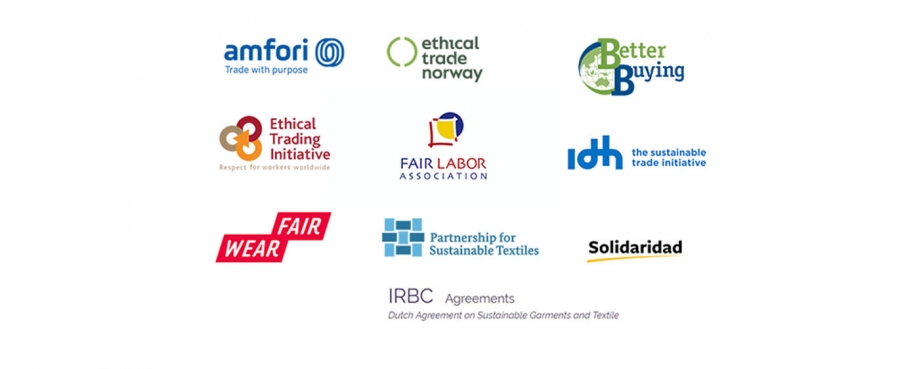
A coalition of 10 international organisations working on better labour conditions for garment workers is calling on garment brands and governments for urgent action amid the COVID-19 pandemic.
A coalition of 10 international organisations working on better labour conditions for garment workers is calling on garment brands and governments for urgent action amid the COVID-19 pandemic.
The experts on workers’ rights in global supply chains agreed on a shared vision on social protection and responsible business conduct during this crisis. In the joint statement, ETI UK, amfori, Better Buying, Fair Labor Association, Fair Wear Foundation, ETI Norway, IDH, the Partnership for Sustainable Textiles, Solidaridad and The IRBC Agreement on Sustainable Garments and Textile express deep concern about the health and livelihoods of millions of garment workers and their families.
COVID-19 has had a devastating global impact on the garment industry. Most factory workers do not earn enough to take care of themselves and their families and lack any kind of safety net to get them through this crisis.
Workers need relief funds
"Factories must ensure on-time payment of salaries to workers who remain actively employed"
The group calls on governments in garment producing countries to protect the income and health of workers and support employers. "Factories must ensure on-time payment of salaries to workers who remain actively employed", they write. If facilities have to close temporarily, the coalition believes that the top priority for all stakeholders should be supporting workers, either directly or in helping them access finances to bridge this period in which they cannot work.
The coalition also urges governments of garment importing countries and multilateral organisations to act. Next to supporting brands and retailers, these governments and organisations should offer relief funds for the people who make our clothes.
The organisations, seven of which represent close to 2,000 garment brands and retailers, understand that garment companies are facing extremely difficult times. Despite this, they ask them to continue to conduct business responsibly. The statement includes a list of crucial points that garment brands worldwide should uphold. This includes:
- working with factories on safety measures to limit the risk of infection
- payment of completed orders and orders in progress;
- avoiding cancellation of planned orders
- flexibility in case factories need to change delivery dates and/or adapt payment terms
- not terminating business relationships with factories without first discussing other options.
Future-proof industry
"The situation offers unique momentum to establish social protection for employees, such as unemployment benefits, in a more sustainable way"
While immediate action is needed, the group also focuses on long-term systemic change of garment supply chains, creating a new normal of fair prices and collaborative relations between retailers, brands and suppliers as well as social protection.
"The situation offers unique momentum to establish social protection for employees, such as unemployment benefits, in a more sustainable way", they write.
The coalition is also working on additional guidance to support companies and stakeholders in the recovery phase.
You can read the coalition’s full statement here.
